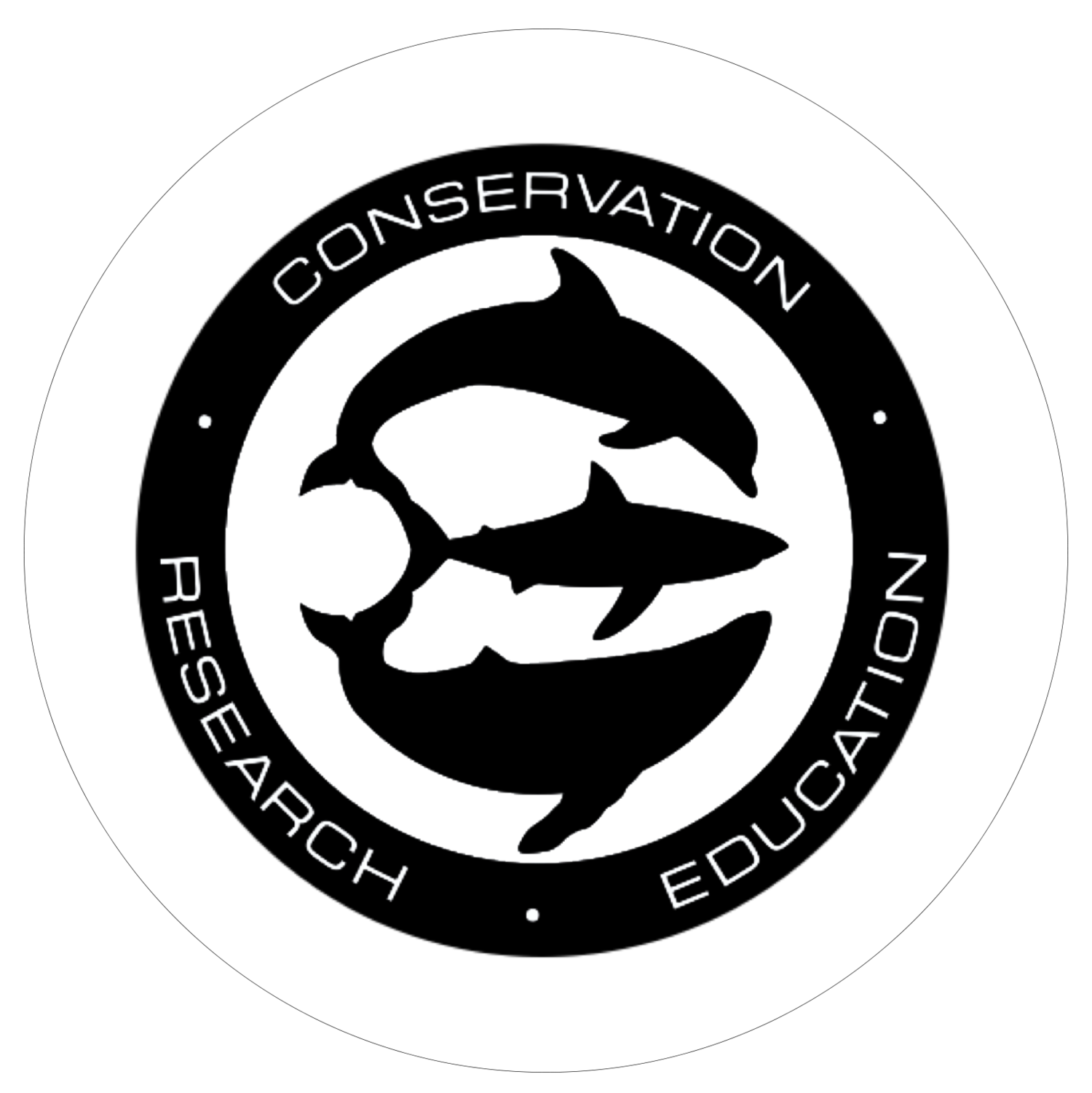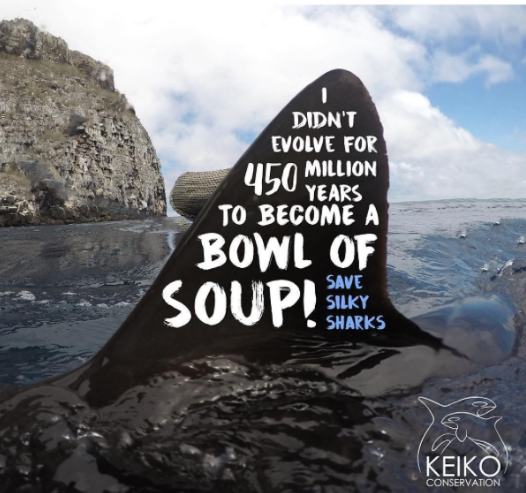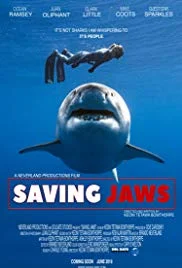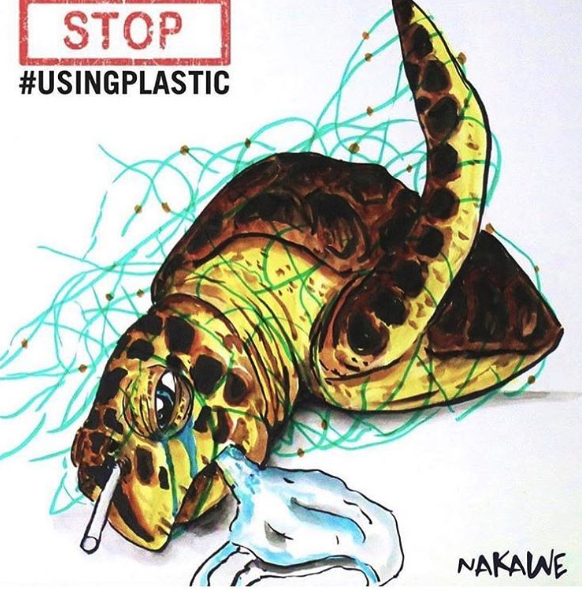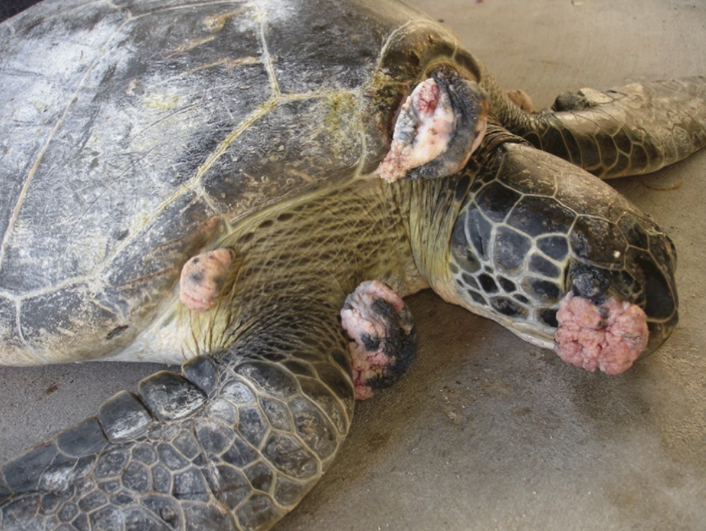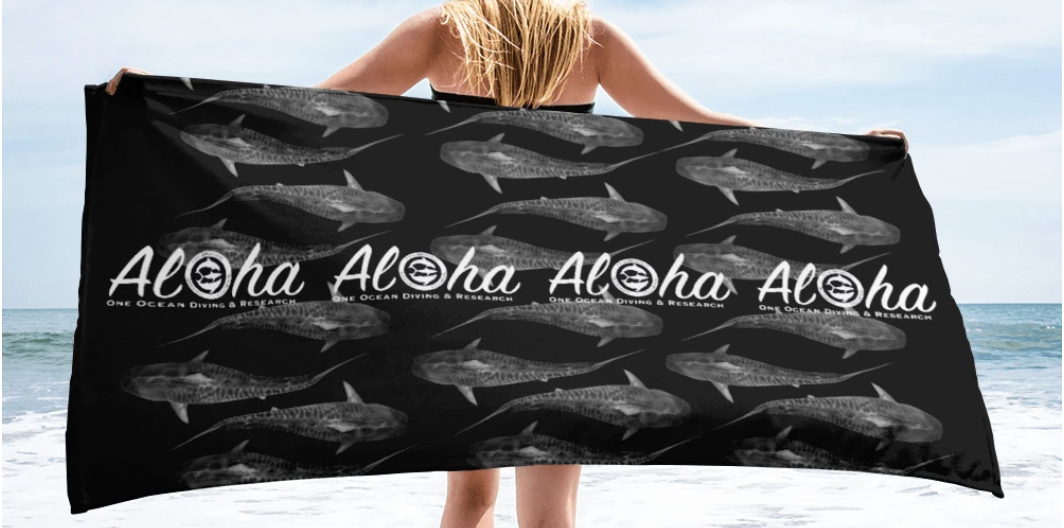CONSERVATION
We hope you will join us soon and thank you for supporting shark and marine research and conservation #sharkandmarineresearchandconservation
We use our marine research to globally inspire conservation. We aim to help people better understand these pelagic animals, the importance they play in their marine ecosystem and the threats they face everyday. The threats pelagic species face have no boundaries! Because of their highly migratory life, the need for international cooperation and protection is imperative! Our goal is to inspire people worldwide to use their voice to help conserve and protect these amazing animals!
Click the link above to join us at our beach cleanups or educational events!
Click the link above to submit testimonies and speak up for marine life!
KNOW A STORE OR RESTAURANT THAT IS SELLING SHARK PRODUCTS/SHARK FIN SOUP? DOWNLOAD AND SIGN THIS LETTER TO GIVE TO THAT ESTABLISHMENT!
Kennen sie einen speicher oder restuarant, das verkauft shark products / shark fin soup? Download und zeigen dieses brief zu diesem bertrieb zu geben!
For German please download this version
Conhece uma loja ou restaurante que está vendendo produtos de tubarão / sopa de barbatana de tubarão? Faça o download e assine esta carta para dar a esse estabelecimento!
鲨鱼翅汤点击链接下载
For Mandarin please download this version
Conosce un negozio o un ristorante che vende prodotti di squalo / zuppa di pinne di squalo? Scarica e mostra questa lettera o dagliela a loro!
For Italian translation download this version
For Portuguese translation download this version
¿Conoces una tienda que vende productos de tiburón / sopa de aleta de tiburón? ¡Descarga y firma esta carta para dar a ese establecimiento!
For Spanish translation download this version
您知道出售鯊魚產品/魚翅湯的商店或餐館嗎?下載並簽署以下信件給公司
For Chinese (Traditional) translation download this version
Kjenner du en restaurant som selger hai / hajfinsuppe? Last ned og skriv dette brevet for å gi til dette etablissementet!
For Norwegian translation download this version
Click the button above to view an interactive map of the plights of different animals and conservation efforts around the globe! Find an organization around you and get involved!
THREATS TO OUR PELAGIC ANIMALS
SHARKS: With 90% of shark species already gone in just the last 20 years, shark fin soup, a delicacy served predominantly in Asia but sourced from around the world, is threatening the survival of sharks as a whole. Although there a multiple threats to sharks, shark fin soup is the biggest contributor. It is estimated that 100 million sharks are killed annually, the majority of those shark just for this dish! This horrific act often involves cutting off only the fins of the shark while it is still alive and then throwing it back overboard to slowly die, often from suffocation or bleeding out.
Sharks play a vital role in our ecosystems and are considered a keystone species. They help maintain a healthy ecosystem by eating the dead, dying and weak animals, while regulating prey populations. The health of our oceans depends on a healthy shark population. There are a number of ways you can help get involved in protecting our sharks!
Minimize or eliminate your consumption of commercially caught seafood
-Only eat sustainably-caught seafood, local is best and hand-line caught - as sharks are regularly unintentionally caught as bycatch and killed by the fishing methods that many large-scale fisheries use such as long-line or purseine-net fishing.
-Know where your seafood comes from. Check out seafoodwatch.org or the SeafoodWatch App which guides you to choose seafood that's fished or farmed in ways that have less impact on the environment. Such a great tool to use while sitting in a restaurant if you’re unsure of the best choice and want to make a difference with your dollar.
-Support businesses like Whole Foods that sources from responsibly managed fish farms and fisheries, and distribute wild-caught seafood from fisheries that are certified sustainable by the Marine Stewardship Council (MSC) or rated either “Green” or “Yellow” by the Monterey Bay Aquarium Seafood Watch.
Don't buy from or support restaurants or businesses that sell shark fin soup or other shark products which can take many different forms including:
-Shark Cartilage pills/powder:
-Shark liver oil (squalene)
-Shark meat
-Shark leather-Shark teeth and jaws souvenirs
-Pet products
CARTILAGE
Shark cartilage (AKA chondroitin) is sold as a supplement which is claimed to offer a range of benefits for conditions inducing arthritis, asthma, eczema, shingles, rheumatism, hemorrhoids, psoriasis, and even cancer despite a lack of scientific evidence or proof of claims. Chondroitin can be found in supplements like “Glucosamine” with some brands not specifying they contain shark. Check your labels and consider a plant-based alternative.
SHARK LIVER OIL (Squalene or Squalane)
-Be aware of the ingredients in your cosmetics. Avoid cosmetics that have squalene and squalane which is a compound derived from shark liver oil
-Squalene/squalane is commonly used in a wide variety cosmetic products including anti-aging creams, sunscreen, lotions, deodorants, hair conditioners, and makeup. It is also included in vaccines, medicinal creams claiming to promote the healing of wounds, irritations of the respiratory and gastrointestinal tract and boost immunity despite a lack of scientific evidence or proof of claims.
-Shark-based squalene is commonly used by many consumer product and cosmetic brands. Recently many major brands have used squalene in the past but have pledged to use readily available alternatives, including Ponds, Boots, Dove, Sunsilk, Vaseline, L’Oreal, Lancome, Soft & Dri, Clarins, Sisley and La Mer.
-SqualAne can be vegetable based (from sources such as olives, amaranth seeds, rice bran, wheat germ, fungi and date palm.) but it is still possible to produce squalAne from shark based sources so it’s important to contact the manufacturer to confirm.
Click here for more information on squalane.
Click here for more information on squalene.
SHARK MEAT
Shark meat is readily sold around the world using a variety of deceptive and misleading names! Consumption of shark meat is not only cruel and unsustainable, but also a hazard for human health. As apex predators sharks bio accumulate heavy metals and toxins and have been found to contain high levels of Mercury. Don’t eat or purchase shark meat. Keep an eye out for shark that may be labelled something else such as:
*Flake
*Lemonfish
*Dogfish
*Whitefish
*Rock Salmon
To view a full list of the different names including those in different languages like Spanish, Greek, French, Italian, and German check out: https://www.visiondive.com/deceptive-names-for-shark-meat/
SHARK LEATHERTory Burch, Jimmy Choo and even Nike have used it for their products. Shark/ray leather can be found throughout the U.S., Germany, Thailand, France, China and Japan. Shark leather is used in boots, shoes, handbags, wallets, belts, cell phone cases, notebooks, and even watchstraps.
TEETH/JAWS
Do not support or purchase shark teeth, jaws or shark pups in preserved bottles. If you want a souvenir to take home, please choose teeth that are fossilized (black) and from a trusted source. If the teeth or jaw are white, they most likely came from a shark that was harvested specifically for your souvenir. If you’re looking for a special token to keep, consider checking out www.foundatsea.org
PET PRODUCTS
Shark is a common ingredient in a range of pet products including cat and dog food, as well as chew toys.
SPEAK UP FOR SHARKS
-Get involved with organizations that support the protection of sharks and the ban on shark finning! Also, ask your local and state government to ban the right to fish for sharks recreationally and commercially, as well as to ban the selling and shipping of sharks, shark products and their fins.
-Your voice can make a difference. If your country is being represented at important policy making events such as CITES, IUCN, or conservation conventions ensure you are being accurately represented by your leaders. Reach out to them and show your support for further protection of shark species and demand conservation initiatives be put in place.
-Spread the word! Not everyone is aware of the importance of sharks in our ecosystems and the impact humans are having on them. Educate and inform your friends, family and community on how we can all work together to protect shark populations from declining any further.
Other Great Resources:
-The 2015 FAO Report “State of the global market for shark products” is one of the most up to date resources on the global shark product trade.
-Project Aware has some great interactive infographics that summarize the key findings of the paper you can check out here
-Databases of businesses that currently sell shark meat and fins can be found here and here.
- Full list of International shark finning bans and policies here
**Note FedEx is NOT on this list! They are one of the last major carriers that ship shark fins and products. Check out these resources from Mission Blue and Sharktopia on how you can get them to stop.
-Comprehensive list of shark Products by FinFree for those who want more details information here
-Documentaries for continued education:
Saving Jaws- Available on Amazon Prime, Vimeo, and iTunes
Are you looking for other resources or do you have some in mind others may find useful? Email us at oneoceandiving@gmail.com and we’re happy to point you in the right direction or add more to this page!
WHALES: Here in Hawaii, we are lucky to be able to enjoy annual Humpback whale migrations. However, these migratory animals are facing entanglement threats in our local waters and in the high seas, as well. Entanglement, most commonly due to commercial fishing gear, can lead to drowning, lacerations (deep cuts), severing of limbs, infection, and starvation. Entanglement can happen from a wide range of gear all across the ocean, including even far from human contact. This is why it is imperative that commercial and recreational fisheries refrain from dumping their unwanted, tangled, or broken gear overboard and properly disposing of it.
Humpback whales and a number of other whale species play an important role in our oceans by recycling nutrients and enhancing primary productivity by mixing up the water column when they surface to feed. Whales also consume a large amount of food, maintaining the population of lower-trophic animals such as krill and plankton. Because of their sheer size, a whale carcass provides a large amount of food to deep sea environments, as well! It is obvious that our oceans need these gentle giants and below are a few ways you can get involved in protecting whale species:
Participate in petitions, and ask your local and foreign governments to continue to protect whale species, especially from whaling.
Reduce as much plastic as you can (start off swearing off single-use plastic) and dispose of trash properly/pick up any you see.
Never discard fishing line and hooks in the water because it can entangle a number of marine animals (like the Honu below).
SEA TURTLES: Despite being one of the oldest marine animals, sea turtles are facing a number of threats. 80% of plastic pollution comes from land. It washes or blows from our rivers, storm drains, streets and beaches and into our oceans. As a result, sea turtles are accidentally ingesting and/or getting caught in this plastic pollution. When ingested, plastics can choke or starve sea turtles, as well as make them fatally ill. The common types of plastic pollution include: plastic bags, plastic bottles and caps, straws, food wrappers, and fishing line. Plastics do NOT biodegrade and break down! Instead, they photo-degrade (from the sun) and break apart into smaller and smaller pieces, which we call micro-plastics. Plastics in our environment today will remain in our environment for hundreds of years. Therefore, reducing our use of single use plastics will overall reduce the input of plastic pollution we are creating and help protect marine species from potential harm.
Fibropapillomatosis (FP) is a debilitating disease that is affecting sea turtles worldwide, including here in Hawaii! This disease is linked to external tumor growths. These tumors can grow so large that they hinder the sea turtles ability to see, swim, and feed. Research efforts are still trying to understand what exactly is the cause of this virus and how it is spreading, but it is hypothesized that pollutants may play a role in the movement of this virus. Here are some ways you can #helpsavethehonu
Reduce your use of single use plastics: use reusable water bottles instead of plastic bottles, reusable bags instead of plastic bags, and say NO to straws (or bring a reusable alternative to use instead like glass or bamboo).
Pick up any trash you find on the ground (even trash in landlocked areas can eventually end up in the ocean by streams and rivers)
Participate in beach cleanups!
Be aware of runoff from your lawn and driveways. A study in 2014, discovered that Nitrogen found in urban and agricultural runoff off from the Hawaiian Islands is being stored in the seaweed and algae that sea turtles are feeding on. They believe that this contaminated algae is aiding the virus in spreading.
Sign a Petition!
Check out a handful of the different petitions out there you can add your voice to #HelpSaveSharks and #SaveTheOcean. Signing only takes 30seconds of your time and can send a strong message to decision makers. Are you aware of a petition or cause you think we should be aware of? Email us at oneoceandiving@gmail.com and we’d be happy to add it to his page and post on social media to encourage others to support.
OUR PARTNERS
One Ocean Diving is an official sponsor of the nonprofit shark and marine conservation group, WATER INSPIRED, founded in 2005 by Ocean Ramsey and Juan Oliphant. The goal was to inspire the world to care about and help protect marine life, with an emphasis on sharks. Today, the organization has grown to include an array of dedicated watermen and waterwomen from scientists, naturalists, professional dive instructors, photographers and videographers, as well as PhD, Masters, and undergraduate students in the marine-science field. Our goal is to help people gain a better understanding and appreciation for marine life in our oceans!
One Ocean Diving is also in association with OCEAN RAMSEY (www.oceanramsey.com) with the focus on changing the perspective people have on sharks. Through peaceful interaction and photography and videography, Ocean Ramsey hopes to promote sharks as they truly are: amazing, beautiful, and important animals that need to be protected.
As One Ocean Diving has grown over the last few years we have been lucky enough to be able to expand our research and conservation efforts to include two more pelagic species- the Hawaiian Green Sea Turtle and Humpback Whales! Our Honu Program is in collaboration with SAVE THE SEA TURTLES INTERNATIONAL based here on the North Shore. Due to rapidly decreasing populations worldwide, we focus on understanding the main threats to their survival- marine debris (plastics and fishing gear) and toxins flowing off land into their environment. Our goal to to continue to preserve these already ancient animals!
KEIKO CONSERVATION is an organization dedicated to making a big impact through small actions of people worldwide. Through social media and online platforms, Keiko and One Ocean Diving provide an easy way for people to work together to make change at the local and global level. Keiko Conservation is a large part of our Humpback Whale Tour that focuses on research efforts to record and track whale song in order to better understand these animals and to inspire people to speak up for these beautiful wild and free animals.
501c3 Federal Tax ID #: 99-0344723
Your donation for One Ocean Conservation will go to items like this or you can sponsor and send these items direct to:
Save The Sea Turtles International PO BOX 940. Haleiwa, HI. 96712.
-Mesh bags
-scissors/knives to cut fishing line
-garden gloves
-buckets/large containers for debris
-garbage bags (biodegradable or compostable preferred)
-sifters to separate plastic from sand
-prizes to award most active participants at monthly cleanups
-professional grade microphone for recording audio for educational awareness interviews
-children’s books, coloring books, shark toys/figurines for educational outreach presentations
-computers for research interns
—YOUR TIME! volunteer or donate your time towards a cause, campaign, or project that helps make a positive impact. Check out @OneOceanGlobal for ideas and guidance.
Proudly partnering with Raw Elements for Reef Safe Sunscreen
